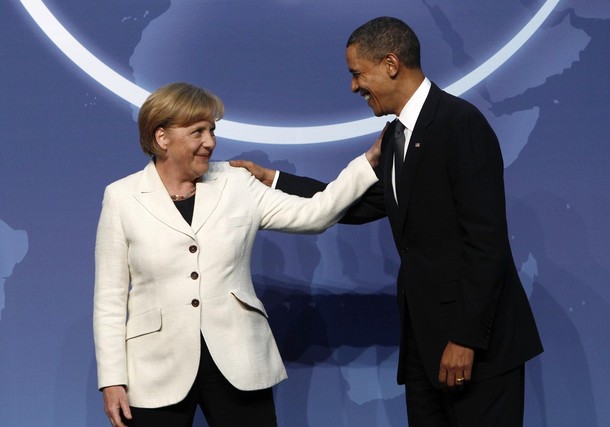
From Stephen Szabo, Europe’s World: America’s foreign policy leaders, both within the U.S. government and elsewhere, are losing patience with Europe. President Barack Obama, who by all accounts is proving a business like and unsentimental occupant of the Oval Office, is having to contend with a serious economic recession and now feels he has repeatedly turned to Europe yet has received little in the way of a concrete policy response. The White House believes his time was wasted at the last U.S.-EU summit in Prague, and so cancelled the next summit scheduled for Madrid. …
The U.S. can achieve some of its Russian goals bi-laterally, especially regarding the strategic nuclear level. But it needs European support to deal with energy security and to create stability in countries that lie between the EU and Russia. But when the United States looks for ways to engage Europe on these issues, neither the EU nor NATO look very promising. …
The NATO-Russia Council depends on Russian willingness to make this a key policy arena, and the Russian leadership is quite clear that it continues to see NATO in zero-sum terms, and so as an adversary. Nor is NATO much of a player in energy security, and its outreach to non-member states threatened by Russia will not include NATO membership or Article 5 guarantees. There is in any case a serious split between the new NATO member states in the east and the old ones in the west on the nature and extent of the Russian threat. …
Germany is by far the most important player in Europe on Russia, having the most extensive economic and energy links to Russia and being the country that Moscow takes the most seriously as an interlocutor. It is not too much to say that there can be no serious western strategy or policy on Russia which is not supported by Berlin. If Washington and Berlin were to be united on a Russia policy, Moscow would have few real options but to accept it, and the same is true of those countries that feel threatened by Russian power. It is therefore with Berlin that Washington is likely to shape those aspects of its relationship with Russia that involve Europe. …
The prospects for a common German-America approach towards Moscow are therefore not bad, and this approach should be extended to include Poland and the other states in the region concerned with shaping a broader Russia strategy. Perhaps some sort of “contact group” of concerned Western states, a Visegrad-plus, should be created. But don’t look to the EU or NATO to be principal arenas for this strategy.
Dr. Stephen F. Szabo is the Executive Director of the Transatlantic Academy. (photo: Reuters) (via atlantic-community.org)
Image: reuters%208%203%2010%20%20Angela%20Merkel%20Barack%20Obama.jpg
